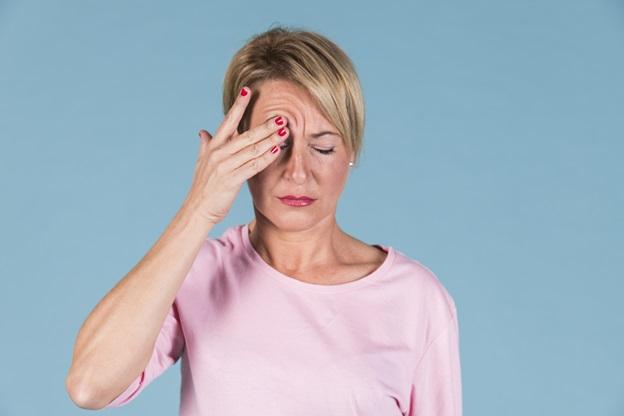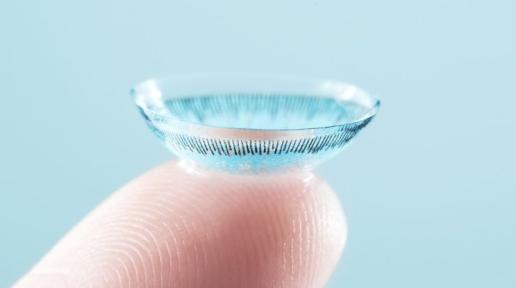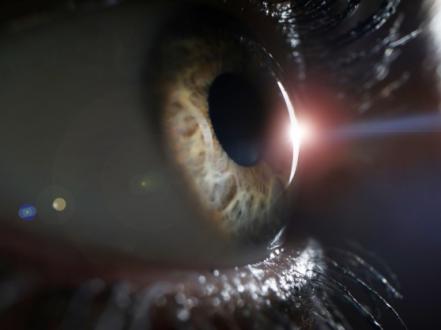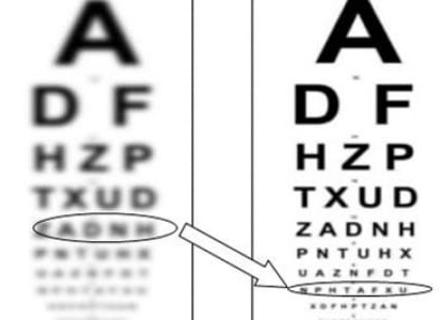One of the most important organs in the body is our eyes as they are the main means of our perspective of the surroundings. Many individuals ignore common eye issues until they cause trouble, even if they are really disturbing. Maintaining excellent eye health and general well-being depends mostly on the recognition and comprehension of various troubles. One such disorder, often misdiagnosed and written off, is watery eyes. Emphasizing the need for early diagnosis and care, this page explores the causes and available treatments for the condition.
Why Should Eye Health Matter?
Preserving eye health is not only important for good vision but also for avoiding more serious medical problems. Given many systemic diseases show first in the eyes, they may be markers of general health. Frequent eye exams help identify these early indicators, therefore enabling quick treatment. Knowing different eye problems, including epiphora, helps people to be informed enough to seek quick medical care, therefore lowering their risk of consequences.
Neglecting Potential Eye Problems: Risks
Ignoring issues might have major medical hazards. Little problems might get out of hand and cause chronic diseases or even irreversible visual loss. For example, untreated watery eyes might be uncomfortable, trigger blurriness of vision, and increase infection risk owing to continuous wetness. Additionally affecting quality of life is chronic eye discomfort from ongoing discomfort, which interferes with everyday tasks like reading, driving, and working.
Early eye problem detection and care help to stop the development of possibly dangerous diseases. Essential stages in preserving eye health include regular eye exams and knowledge of signs like redness, pain, or excessive tears.
So let’s grasp the issue, its causes, and the many therapeutic approaches accessible at the end. Equipped with this information, you may proactively manage any symptoms and preserve your best eye condition.
What Causes Watery Eyes?
The condition is a bothersome and chronic disorder. Although it might appear contradictory, dry eye syndrome is really one of the frequent reasons for watery eyes. Because the eyes try to offset dryness by generating additional tears, this disorder causes too much crying. Still, dry eye condition is just one of many possible explanations. Knowing these underlying causes can help one properly manage and treat eyes that are watery.
1. Syndrome of Dry Eye
Dry eye syndrome is the result of either insufficient tears or too rapid tear disappearance from the eyes. This may cause a loop wherein the eyes overproduce tears in an attempt to rehydrate themselves, therefore causing the unpleasant issue. Many elements may lead to dry eye syndrome, including:
Aging: The tear generation often falls as one is aging.
Environmental Conditions: Dry eyes may be aggravated by wind, smoke, and dry air.
Digital Strain: Extended use of computers, cellphones, and other digital devices lowers blinking, therefore causing dry eyes.
Lenses: Extended usage of contact lenses may cause dryness and discomfort.
Allergies: Watery eyes may result from responses to pollen, dust, pet dander, and other allergens. As the body attempts to eliminate the irritants, allergies set up histamine release that causes inflammation and more tear formation.
2. Eye Viruses
Eye bacterial, viral, or fungal diseases may irritate and induce too many tears. One frequent example where the eye is red, puffy, and watery is conjunctivitis, also known as pink eye.
3. Obstructed Tear Ducts
The lacrimal glands generate tears that travel through tiny channels into the nose. Tears cannot drain adequately and overflow from the eyes when these tear ducts are obstructed or constricted. Aging, accidents, or infections may all cause this disorder either congenital or acquired.
4. Problems with Eyelids
Epiphora results from disrupted normal tear distribution and drainage caused by eyelid problems like ectropion (outward turning of the eyelid) or entropion (inward twisting of the eyelid).
5. Foreign Bodies and Aggressors
Foreign items like dust, sand, or trash could irritate the eye and cause it to shed extra tears to clear the irritation. Other contaminants, toxins, or smoke may potentially set up too strong tearing as a defense mechanism.
6. Medical Problems
Tear production may be affected by several medical ailments including thyroid problems, Sjögren's syndrome, and rheumatoid arthritis.
7. Medicines
Certain pharmaceuticals, including antihistamines, antidepressants, and blood pressure medications, might lower tear output, hence causing dry eyes and compensatory too-strong crying.
Complete Origins of Watery Eyes:
- Dry Eye Syndrome: Either insufficient or fast tear evaporation.
- Allergies: Triggered by pollen, dust, and other allergens.
- Eye infections: These might be bacterial, viral, or fungal.
- Blocked tear ducts: limited tear flow.
- Eyelid issues: entropion or ectropion.
- Enviroment: Chemicals, smoke, and dust; foreign bodies and irritants.
- Medical Conditions: Sjögren's syndrome; rheumatoid arthritis.
- Medications: Side effects of certain medications.
Knowing the many causes can help you to find the underlying problem and pursue suitable therapy. Finding relief starts with recognizing the underlying problem.
How Do I Get My Eyes to Stop Being Watery?
Dealing with the issue may be annoying, particularly in cases of uncertainty over the treatment for the symptoms. Whether the reason is allergies, dry eye syndrome, or another condition, there are doable actions you may take to control and lessen too many tears. These reliable and efficient care pointers will get you going.
Consistent Eye Hygiene
Preventing and controlling the issue requires constant proper eye care. To clear any trash or accumulation, gently wipe your eyelashes with a warm, wet towel. Particularly in cases of blepharitis or persistent eye irritation, this may help ease irritation and inflammation.
Artificial tears sold over the counter may provide much-needed moisture for dry eyes. These lubricating eye drops may be used many times a day and assist in keeping the eyes moist. If you have sensitive eyes or must use them often, choose preservative-free choices.
Change Your Scene
Your eye condition is significantly influenced by environmental elements. To minimize irritation:
- Particularly in dry or air-conditioned settings, use a humidifier to moisten the air.
- Frequent pauses from screens help to reduce eye strain and dryness. Every twenty minutes, spend at least twenty seconds staring at anything twenty feet away.
- Wear sunglasses outside to protect your eyes from UV light, dust, and wind. This may guard against irritants and assist in lowering tear evaporation.
Remain Hydrated
Like general health, ocular condition depends on proper hydration. To keep enough tear production and avoid dryness, drink plenty of water all day.
Sort Allergies
If your watery eyes are brought on by allergies, try to reduce your allergen exposure:
- Keep windows closed during heavy pollen seasons to stop allergens from invading your house.
- Use air cleaners to help eliminate allergens from the air, therefore lowering the possibility of allergic responses.
- Allergy symptoms may be managed with antihistamines. Before beginning any new medicine, however, see a healthcare provider.
Correct Contact Lenses Use
If you use contact lenses, make sure they fit you well and are clean. Using expired lenses or overwearing contacts may irritate and dry the eyes. Recommendations for lens maintenance and replacement schedules come from your eye care provider.
Warm Treatments
Using a warm compress on your eyes can assist in unclogging oil glands and increase tear quality. For those with disorders like meibomian gland dysfunction especially this is helpful. Every few days, cover your closed eyes with a fresh, warm towel for several minutes.
Consult a Professional for Advice
See a professional if self-care steps do not help your symptoms. The underlying reason for the issue may be found by an eye care professional, who can also suggest suitable treatments—prescription eye drops, surgery to remove clogged tear ducts, or therapy for underlying medical disorders.
Including this useful set of care advice will help you to efficiently control and lessen the pain.
How Do You Treat Watering Eyes?
Effective treatment starts with knowing their underlying cause. For people who weep excessively, it's important to recognize that the underlying cause determines the available therapy choices. Should dry eye syndrome be the cause, artificial tears—also known as lubricating eye drops—are commonly advised to maintain eye moisture. These drops help to relieve dryness and lower tear overproduction all day long.
Managing allergen exposure is very vital for those with allergies. To help with allergic responses, this might include oral drugs or antihistamine eye drops. Additionally helping to reduce allergy exposure is closing windows during high pollen seasons and using air purifiers.
Correct medical care is required in situations where diseases like conjunctivitis cause watery eyes. A healthcare provider may write prescription for antibiotic or antiviral eye drops to treat the infection and lower symptoms.
Blocked tear ducts need for some other strategy. Sometimes a little massage of the tear ducts helps, but more frequent obstructions may call for medical intervention—a short surgical operation to empty the ducts.
At last, surgical correction may be required to restore appropriate tear drainage for those with eyelid disorders like ectropion or entropion. Accurate diagnosis and treatment planning depends on speaking with an eye care professional. Effective therapy may be obtained by tackling the particular source of watery eyes, therefore relieving symptoms and enhancing general eye condition.
Knowing When Watery Eyes Result from Dry Eyes
It may be difficult to understand the link between watery and dry eyes, particularly because it appears counterintuitive that dry eyes would cause too much crying. But this disorder, also referred to as reflex crying, results from the eyes being so dry that they overcompensate by generating more tears. Acknowledging this disease means focusing on certain symptoms and circumstances.
Usually, dry eyes are the cause of your eyes feeling gritty, burning, or weary, particularly after extended reading or screen usage. After this pain, tears might flood your eyes as they attempt to offset the dryness. Usually, this overproduction of tears does not help to alleviate the dryness as the generated tears are generally of low quality and do not remain on the surface of the eye long enough to provide sufficient moisture.
In windy or air-conditioned surroundings, when the air is dry and aggravates the disease, you might also find that your eyes are very moist. Furthermore, if you often feel the urge to blink or shut your eyes to ease pain, this might mean that your eyes are not correctly holding moisture, which would cause reflex tearing. Knowing these symptoms will enable you to seek suitable therapy and determine if dry eyes are the underlying reason for your watery eyes.
Maintaining eye health and comfort depends on an awareness of and resolution of the factors causing watery eyes. You may control it successfully and make sure your eyes stay healthy and functioning by identifying symptoms, using appropriate remedies, and, when necessary, consulting professionals.






